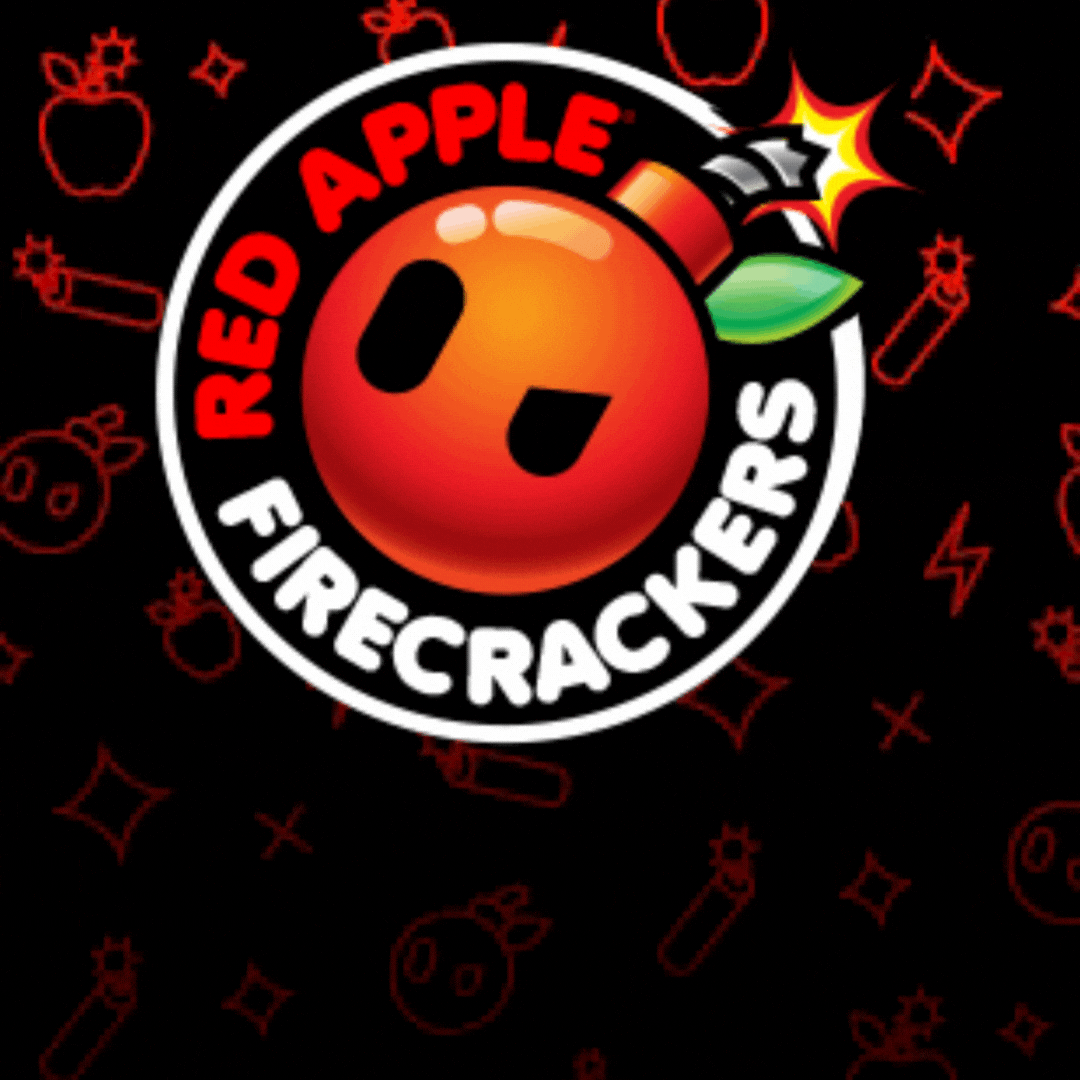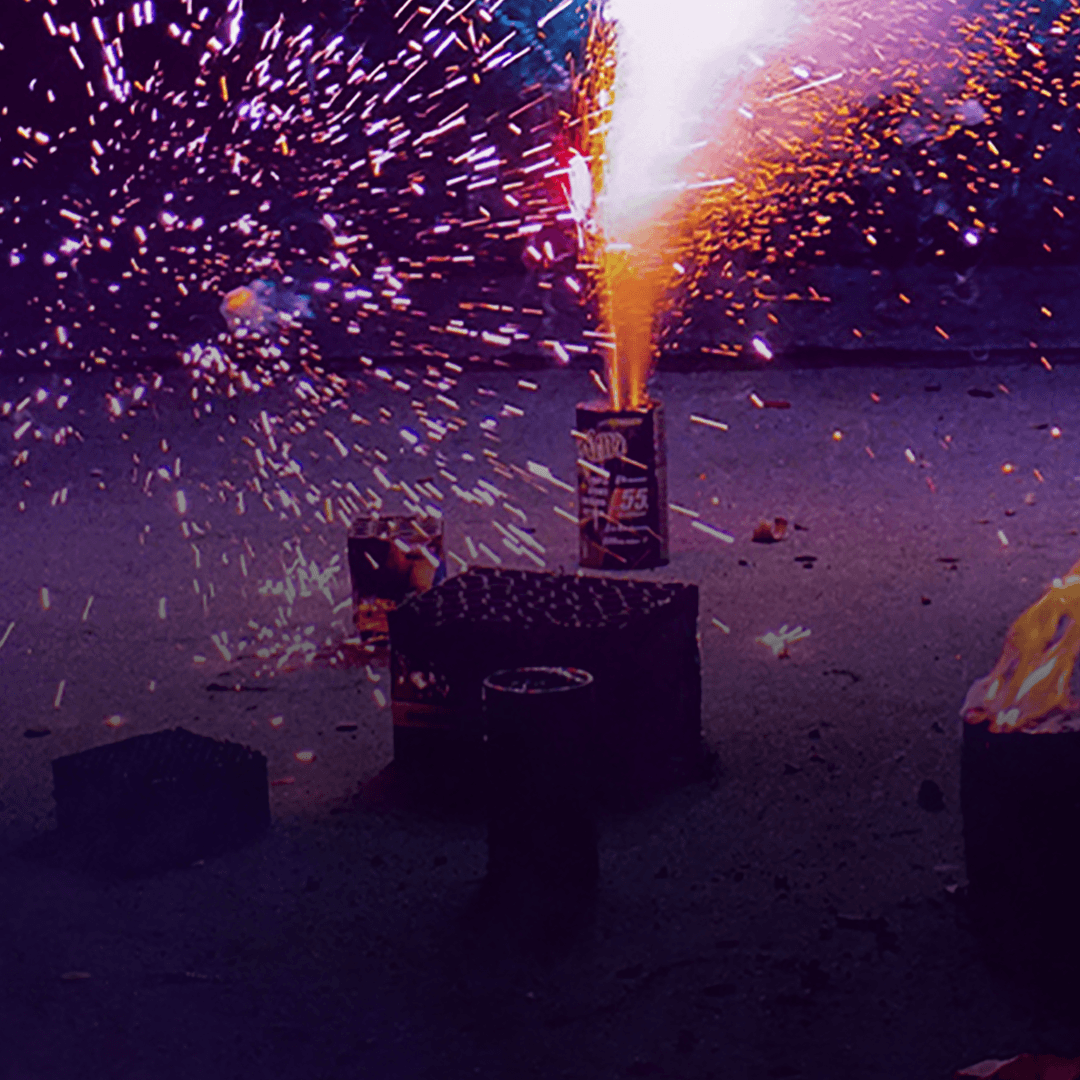At Red Apple Fireworks, we know that a spectacular firework display relies on precision, timing, and—above all—safety.
One critical component often overlooked is the fuse. But what are firework fuses made of, and how exactly do they make your celebrations safe and unforgettable?
Today, we're taking a closer look at firework fuses, their construction, and their essential role in every fireworks show.
Whether you're planning a backyard bash or a major professional event, knowing fuse basics ensures you'll be ready to safely ignite your display and celebrate confidently.
What this article covers:
- The Basic Components of Firework Fuses
- Types of Firework Fuses
- The Process of Firework Fuse Manufacturing
- Safety Considerations for Firework Fuses
The Basic Components of Firework Fuses
A firework fuse isn't just a simple string—it's a carefully engineered component designed to give you a safe and spectacular experience every time.
What Is a Firework Fuse?
Simply put, a firework fuse is the ignition source for fireworks.
Typically made from a core of black powder or other combustible materials wrapped in paper or fabric, fuses are essential to safely ignite fireworks from a distance.
They allow you plenty of time to step away after lighting, ensuring your celebrations stay exciting—and safe.
The Role of Fuses in Firework Displays
A good fuse ensures your firework launches exactly when you want it to—predictably and safely.
It provides reliable timing between lighting the fuse and the firework's dramatic burst, essential whether you're a DIY enthusiast, event planner, or hosting family celebrations.
Types of Firework Fuses
Not all firework fuses are alike.
Different fuse types control speed, safety, and visual effects, perfect for every celebration style from July 4th festivities to wedding displays.
Visco Fuse: The Most Common Type
The most popular fuse among consumers is the Visco fuse, easily recognizable by its green or gray paper wrapping.
Visco fuses have a consistent, steady burn rate, giving you ample time to step away safely. They're ideal for backyard celebrations, DIY firework shows, and family-friendly gatherings.

Quick Fuse and Time Fuse
Quick fuses burn extremely fast—perfect when precise timing is essential in choreographed professional shows.
Time fuses, on the other hand, offer accurate delay intervals, ensuring fireworks burst exactly when planned.
Knowing exactly how to light fireworks with each type of fuse is key to achieving professional-grade results at your events.
Specialty Fuses
Specialty fuses add extra fun to your displays! For instance, flying fish fuse creates sparkling trails in the sky.
Waterproof fuses resist moisture for outdoor events, while crackling fuses add extra excitement with sound effects, making celebrations unforgettable for event planners and seasonal buyers alike.
The Process of Firework Fuse Manufacturing
Making reliable firework fuses requires expertise, precision, and careful chemistry.
The Process of Making a Fuse
Firework fuse manufacturing begins with cotton or synthetic string, which is carefully coated in a controlled mixture of black powder, adhesives, and binding agents.
Layers of paper or fabric surround this combustible core, protecting the fuse and controlling its burn speed.
Ever wondered how are fireworks made? The fuse is crucial, making sure everything lights at just the right moment, every time.
How Fuse Length and Burning Speed Are Controlled
Manufacturers control burning speed by adjusting chemical compositions, fuse thickness, and coatings.
The fuse length affects timing—longer fuses offer more time to safely distance yourself.
At Red Apple Fireworks, we provide fireworks with consistent fuse lengths and burning speeds, keeping safety top of mind for every celebration.
Safety Considerations for Firework Fuses
Fuse quality directly impacts safety, which we prioritize at Red Apple Fireworks. Quality fuses prevent accidental ignitions and unexpected delays.
Why Fuse Quality Matters in Firework Safety
Fuse quality directly impacts safety. Poorly made fuses can burn unpredictably, too fast, too slow, or even stop prematurely.
Reliable fuses reduce accidents and increase enjoyment for everyone, especially families and seasonal buyers who value safety during celebrations.

How Fuses Prevent Accidental Ignition and Delays
Well-constructed fuses ignite predictably and burn consistently. They allow fireworks to function safely—reducing risks from early explosions, unexpected bursts, or delayed ignitions.
Our Red Apple Fireworks products feature carefully crafted fuses, ensuring every display remains safe, timely, and worry-free.
Conclusion
Understanding what are firework fuses made of is key to celebrating safely and spectacularly.
At Red Apple Fireworks, we're committed to quality, reliability, and family-friendly fun—providing you with top-notch fireworks and expert advice to elevate every event.
If you're looking for spectacular fireworks to go with your next special occasion or holiday, look no further than our finale fireworks and firecrackers collection.
These are designed to give your event a lasting impact and provide an unforgettable visual experience for everyone involved.
Want to make your fireworks displays even better? Join the Club Red Apple® and save up to 25%! By becoming a member, you unlock explosive benefits that take your fireworks experience to the next level.
It's a membership program made for true fireworks enthusiasts who want access to premium discounts and insider perks. So, why wait? Level up your fireworks game with Red Apple Fireworks today!
If you want to learn more, check out these articles below:
- Where Are Fireworks Made
- Is There Gunpowder in Fireworks
- Facts About Fireworks
- Why Do Celebrate with Fireworks?
- How Do Fireworks Get Their Color?
- What Element Makes Purple Fireworks?
- What Element Will Give Fireworks Their Yellow Color?
- What Makes Fireworks Blue?
- Which Metal Ion Is Responsible for the Red Firework?
- How Does a Firework Work?
- What Chemicals Are Used in Fireworks?
- What Minerals Are Used to Make Gold Sparks Fireworks?
- What Three Processes Cause Fireworks to Emit Light?
- What Problem Occurs If the Firework Mixture Is Not Pure?
- When Were Fireworks Invented?











Leave a comment
All comments are moderated before being published.
This site is protected by hCaptcha and the hCaptcha Privacy Policy and Terms of Service apply.